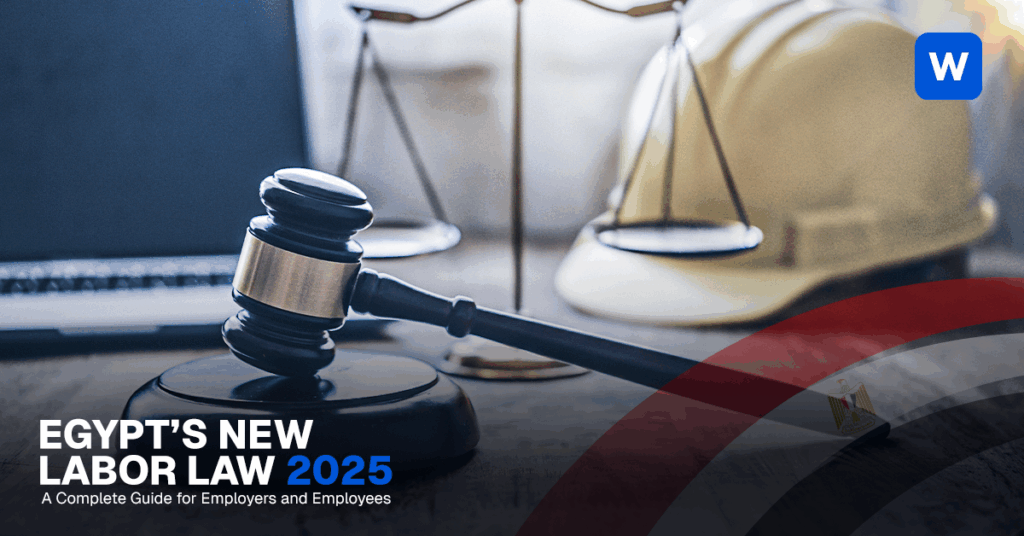Contract termination in Egypt’s labor law and unfair dismissal have always been sensitive issues, requiring a careful balance between an employer’s needs and employee rights. The new updates in the Egyptian labor law introduce clearer rules to make ending a job fairer and safer for everyone.
This article explains the basics of contract termination under Egyptian labor law, highlighting the key updates and what they mean for both employers and employees.
Legal Framework of Contract Termination in Egypt’s Labor Law

The new Egyptian labor law makes it clear that terminations must be legal and follow strict steps. Employers and employees now have better guidance on ending fixed-term contracts, retiring at the right age, or handling misconduct at work.
Learn more about when Egypt’s new labor law took effect and the key changes it introduces.
When Can Employers Legitimately Terminate a Contract?
Not every termination counts as unfair. Under the 2025 labor law updates, employers can only end contracts for legitimate reasons, including:
- Gross misconduct such as theft, intoxication at work, or major safety violations.
- Poor performance or inefficiency, but only after internal procedures are followed.
- Economic downsizing or restructuring, as long as legal steps are taken and proper compensation is provided.
- Retirement at 60 years old, or at the end of a fixed-term contract (whichever is later).
These changes make it harder for employers to dismiss staff without justification, aligning with unfair dismissal law protections.
Employee’s Right to Terminate
Employees also gained stronger rights under the new law:
- Resignation can be withdrawn within 10 days of acceptance.
- Indefinite contracts can be ended for health, financial, or social reasons.
- Female employees can resign without losing rights if due to marriage, pregnancy, or childbirth.
Termination Due to Incapacity or Death
The law also clarifies what happens in difficult circumstances, such as:
- Total incapacity results in automatic contract termination.
- Partial incapacity must be accommodated if possible.
- In case of death, the employee’s family receives compensation equal to two months’ salary (minimum 1,000 EGP), plus an additional grant covering the month of death and the following two months.
What Counts as Unfair Dismissal?
The unfair dismissal law steps in to protect employees when they’re let go for reasons that aren’t valid under the law. This includes:
- Termination without a clear reason.
- Discrimination-based dismissal (gender, religion, etc.).
- Retaliation against workers who exercise their legal rights or file complaints.
Employees have the right to contest the decision in such circumstances and request payment or even reinstatement.
Legal Protections and Employee Entitlements
Under Egyptian labor law, ending a job isn’t just about having a valid reason — employers must also follow clear steps to protect workers.
The law requires notice periods and severance pay, so employees have support and time to adjust. This helps ensure fairness and prevents sudden dismissals.
Compensation and Severance Pay
The new law outlines clearer compensation rules:
- For economic termination, employees receive half a month’s salary for each of the first five years of service, then a full month for every additional year.
- In retirement cases where employees are not eligible for social insurance, they are entitled to the same formula of end-of-service benefits.
This provides more financial stability and transparency in cases of contract termination under Egyptian labor law.
Notice Periods
Termination isn’t immediate. Under contract termination in Egyptian labor law, employers must respect notice periods, which vary depending on the employee’s length of service.
Notice periods are now stricter:
- 2 months if service is less than 10 years.
3 months if service exceeds 10 years.
Employees are also entitled to paid time off to find a new job during the notice period. Notice is valid only when the employee returns to work, not during vacation.
How Does the New Labor Law Handle Termination Disputes?
Disagreements can happen, but the law now offers a clear path to solve them without long court battles:
- Labor offices handle disputes first, aiming for mediation.
- If no solution is reached, cases go to arbitration committees.
- As a last resort, parties can take the matter to labor courts.
This system encourages fair settlements while keeping the courts from being overloaded.
Conclusion
The 2025 labor law gives employers and employees clearer rules around termination and unfair dismissal. Employers must follow the law, while employees can feel safer knowing their rights are stronger.
For those seeking a workplace that values fairness, compliance, and growth, WUZZUF can help connect you with employers who prioritize career development and respect labor laws.
Ready for your next Career Step?
Explore the best Jobs and Internships in Egypt and Saudi Arabia on WUZZUF Today!

